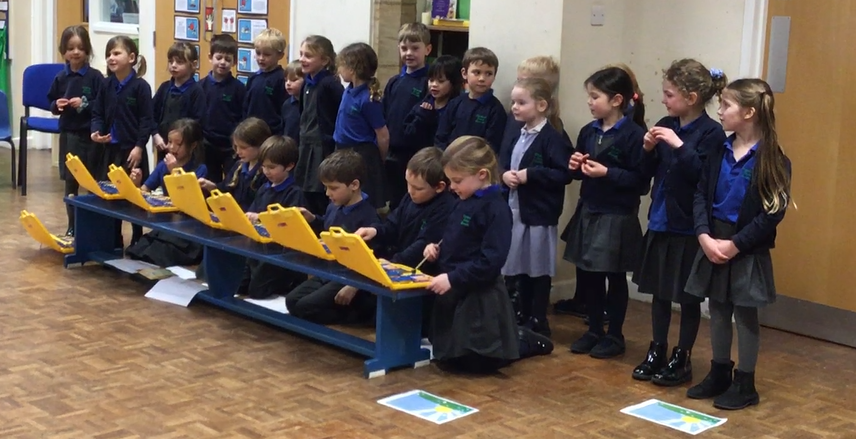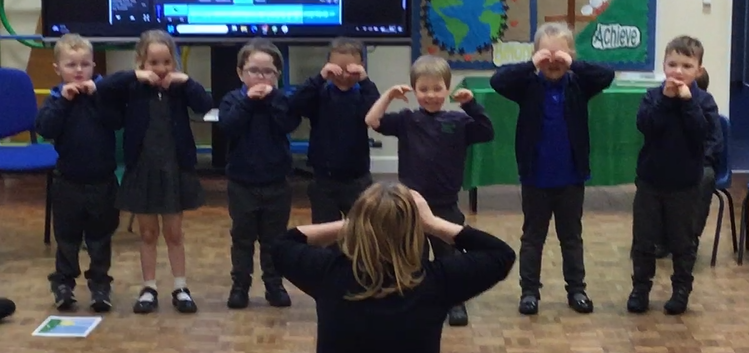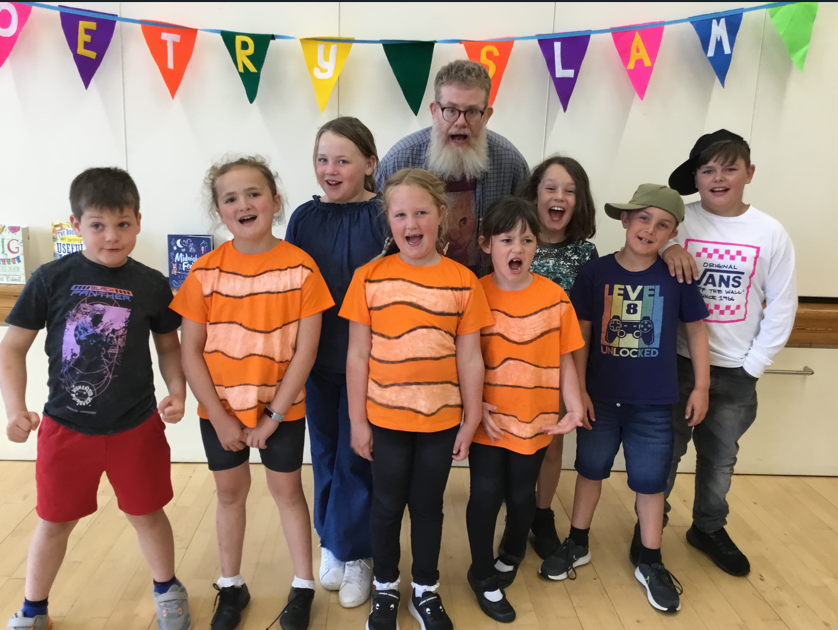Spoken Language
What is Spoken Language?
The national curriculum for English reflects the importance of spoken language in pupils’ development across the whole curriculum – cognitively, socially and linguistically. Spoken language underpins the development of reading and writing. The quality and variety of language that pupils hear and speak are vital for developing their vocabulary and grammar and their understanding for reading and writing.
Through the eyes of our children, speaking is important because:
‘It helps us to listen to the views of others and explain, in a clear and confident manner, what we think ourselves.'
Curriculum Intent
At Stickland's CE VA Primary School, we value Spoken Language as an important part of children’s entitlement to a broad and balanced curriculum. Spoken Language provides children with the opportunities to develop and extend skills and to express their individual interests, thoughts and ideas.
Our aim is to enable all children to improve their levels of spoken language so that they are able to communicate effectively and confidently in front of any type of audience. These skills are encouraged in every area of our curriculum as good communication skills can enhance every type of learning. Children are encouraged to explore ideas through talk; challenge each other’s opinions and develop their own reasoned arguments, as well as talking in full sentences with a clear and confident voice.
Pupils should be taught to:
- listen and respond appropriately to adults and their peers
- ask relevant questions to extend their understanding and build vocabulary and knowledge
- articulate and justify answers, arguments and opinions
- give well-structured descriptions and explanations
- maintain attention and participate actively in collaborative conversations, staying on topic and initiating and responding to comments
- use spoken language to develop understanding through speculating, hypothesising, imagining and exploring ideas
- speak audibly and fluently with an increasing command of Standard English
- participate in discussions, presentations, performances and debates
- gain, maintain and monitor the interest of the listener(s)
- consider and evaluate different viewpoints, attending to and building on the contributions of others
- select and use appropriate registers for effective communication.
Implementation
The teaching and implementation of the Spoken Language curriculum at Stickland's CE VA Primary School is based on the Early Learning Goals and National Curriculum.
Staff at Stickland's model the use of higher level vocabulary within their speech and expanding children’s vocabulary is a key focus in all years. Subject specific vocabulary is embedded across the curriculum, through teacher modelling, in context. Contextual learning helps children to understand new words and supports them in including new vocabulary in their work. This model is reflected in both reading and spelling sessions, where children are given the chance to explore unfamiliar vocabulary and expand their knowledge of words. We are keen to model the correct grammar in speech, for example using ‘we were’ instead of ‘we was’ and encourage children to reflect this in their use of spoken and written language. Children are given the chance to orally rehearse ideas for writing regularly.
Drama is used across a range of subjects, including History, problem solving in Mathematics, hot-seating during English lessons and Religious Education, to explore and engage children in their learning. This gives children the chance to embed the use of specific vocabulary repetitively.
Each term, we hold a poetry performance assembly where each class learns and performs a poem to the rest of the school and KS2 take part in an annual poetry SLAM with cluster schools (see below with poet AF Harrold).



Poetry Sharing Assembly Poetry SLAM with AF Harrold
At Christmas, EYFS and KS1 children perform their Christmas production & KS2 classes create showing assemblies and plays to celebrate topic learning throughout the year for the school, parents and wider community. At the end of the academic year, the Year 6 children perform a tailored production for parents and carers.
For a number of years, we have provided an extracurricular drama club for pupils in Year 2 and above. Children are given different scenarios and rehearsal times when they are given the opportunity to work with children from different classes. Performances for parents, carers and the wider community have included Shakespearian plays and comedies.
Speech and language skills are assessed carefully but informally throughout the school through activities, classroom discussions and games. However, further speech and language assessments are carried out if teaching staff are aware of students who are struggling to develop key speech and language skills, so that additional support can be put in place. This can range from pre-teaching a text to a specific group of children to ensure that the context and vocabulary is accessible to all during whole class reading lessons, to a tailored speech and language intervention with external agency support.
Impact
Through the explicit teaching of speaking skills, teachers and the children assess their learning continuously throughout the lesson. Children are given a range of opportunities to develop these skills, in a safe and stimulating environment. The wide range of speaking and listening activities help to develop ideas, vocabulary and confidence, as, the more we talk, the more we notice different words that other people use.
Children leave Stickland's able to express themselves confidently orally and in writing.